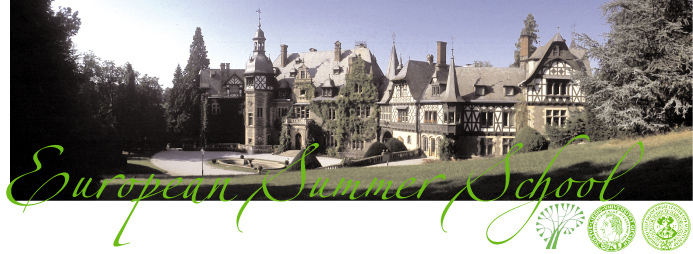|
|||||||
|
|||||||
|
Organizers:
Wolfgang Einhäuser-Treyer
Roland Fleming
Alexander Schütz
Funded by the Center for Mind, Brain and Behavior at
Justus-Liebig University Gießen and Philipps-University Marburg.
|
Visual neuroscience studies the neural underpinnings of visual function and visual sensation. Its results contribute to our understanding of cognitive brain processes in general and also help to boost the capabilities of technological vision systems. Vision neuroscience involves a wide variety of methods and approaches—computational theory, neurophysiology, neuroanatomy, functional imaging, psychophysics, neuropsychology, and others—and illustrates perhaps more clearly than any other area of brain research, the overriding need to combine and coordinate these diverse efforts. The European Summer School exposes young vision researchers—at the late pre-doctoral or early post-doctoral level—to the principal methods and seminal issues of contemporary visual neuroscience. In addition, it seeks to build a basic fluency in the emerging lingua franca of computational neuroscience. The range of topics is broad, literally from spikes to awareness, and the pace correspondingly brisk. This intensive experience should allow participants take a broader view of, and make more informed decisions about, their future research direction. The European Summer School is taught by leading researchers in neurobiology, neuropsychology, psychophysics, and theoretical neuroscience. Two thematically related topics are covered each day, with approximately 3 hours allotted to each (including discussion time). An after-dinner discussion provides an opportunity to contrast and compare the day’s lectures. In addition, students pursue computational and theoretical projects (based on Matlab) during the afternoon, to experiment with key concepts and techniques of computational neuroscience. Confirmed speakers in 2026 are Wyeth Bair (Seattle), James Bisley (Los Angeles), Holly Bridge (Oxford), Farran Briggs (Rochester), Wolfgang Einhäuser-Treyer (Chemnitz), Roland Fleming (Giessen), Karl Gegenfurtner (Giessen), Kalanit Grill-Spector (Stanford), Zoe Kourtzi (Cambridge), Pascal Mamassian (Paris), Tony Movshon (New York), Anitha Pasupathy (Seattle), Michal Rivlin (Weizmann Institute), Pieter Roelfsema (Amsterdam), Ruth Rosenholtz (Nvidia), Alexander Schütz (Marburg), Stefan Treue (Göttingen), Felix Wichmann (Tübingen).The European Summer School meets at idyllic and inspiring Schloss Rauischholzhausen in Hessia, Germany (pictured above). The main selection criterion for participants is the degree of benefit that each applicant can be expected to derive from the course. In addition, the organizers attempt to balance fields, nationalities, and genders among participants. Updates on the program will be posted here at the beginning of 2026. Due to the generous support of the Center for Mind, Brain and Behavior at Justus-Liebig University Gießen and Philipps-University Marburg, the tuition for the course, including food and lodging amounts 1500 €. |







